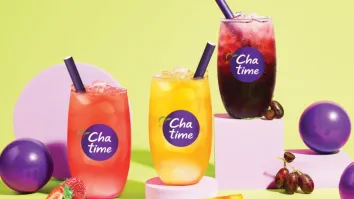Things you must find out about the latest changes in food labelling
By Rachael SuttonThe Australian Competition and Consumer Commission jumped on claims, this week, by a number of bottled water manufactures that their water was ‘organic’.
The ACCC forced these companies to stop calling their product organic water.
The ACCC was doing these companies a favour really, when you think about it, describing water as organic conjures up images of water with living organisms or made from living organisms which may make it unsafe to drink.
The reasoning behind their decision is that there are a number of highly specific attributes that come along with naming a product organic and, even though the water bottlers claimed they were just brand naming their product, the ACCC ordered they remove the labels.
The fact is that we live in an age where our use of language is highly contentious, and claims on labels are coming under a scrutiny that has never been as rigorous as it is now.
Take the recent changes to the law that require health and nutrition claims to be scientifically verified by Food Standards Australia and New Zealand (FSANZ) and other proposed changes to Front of Packet Labelling (FoPL).
The new rules regarding health claims and food divide claims into two distinct categories. There are General level health claims, which refer to a nutrient in the food and its effect on a person’s health. This level of health claim must not refer to a serious disease or to biological markers related to a disease.
The second category of claims is referred to as High level health claims and these claims refer to a nutrient and its relationship to a disease and any biological marker connected to that disease.
A good example of this might be a spread that is effective in lowering cholesterol (a biological marker connected with heart disease) or a product that is high in calcium, which is effective in reducing the risk of osteoporosis – a disorder that weakens bones – in older people.
As I mentioned, all health claims will only be allowed on products that have been scientifically verified to show the relationship the health claims argue as true.
Health claims will also only be allowed on products that meet the nutrient profiling scoring criterion (NPSC), which means that health claims will not be allowed on products that are high in saturated fat, sugar or salt.
As of last month, a new set of rules that apply to all packaged, manufactured or processed foods sold through retail outlets have been proposed that involve front of packet labelling. The most salient features of these new regulations are a health star rating system and a scoring system for nutrients.
The health stars run on a scale of half a star to five stars, while the nutrient scoring system provides information for elements such as saturated fat, sugars and sodium (along with one positive nutrient, for example, calcium).
This system is yet to be finalised, and we can expect that the Government will release more detail regarding its implementation over the next 12 months.

























